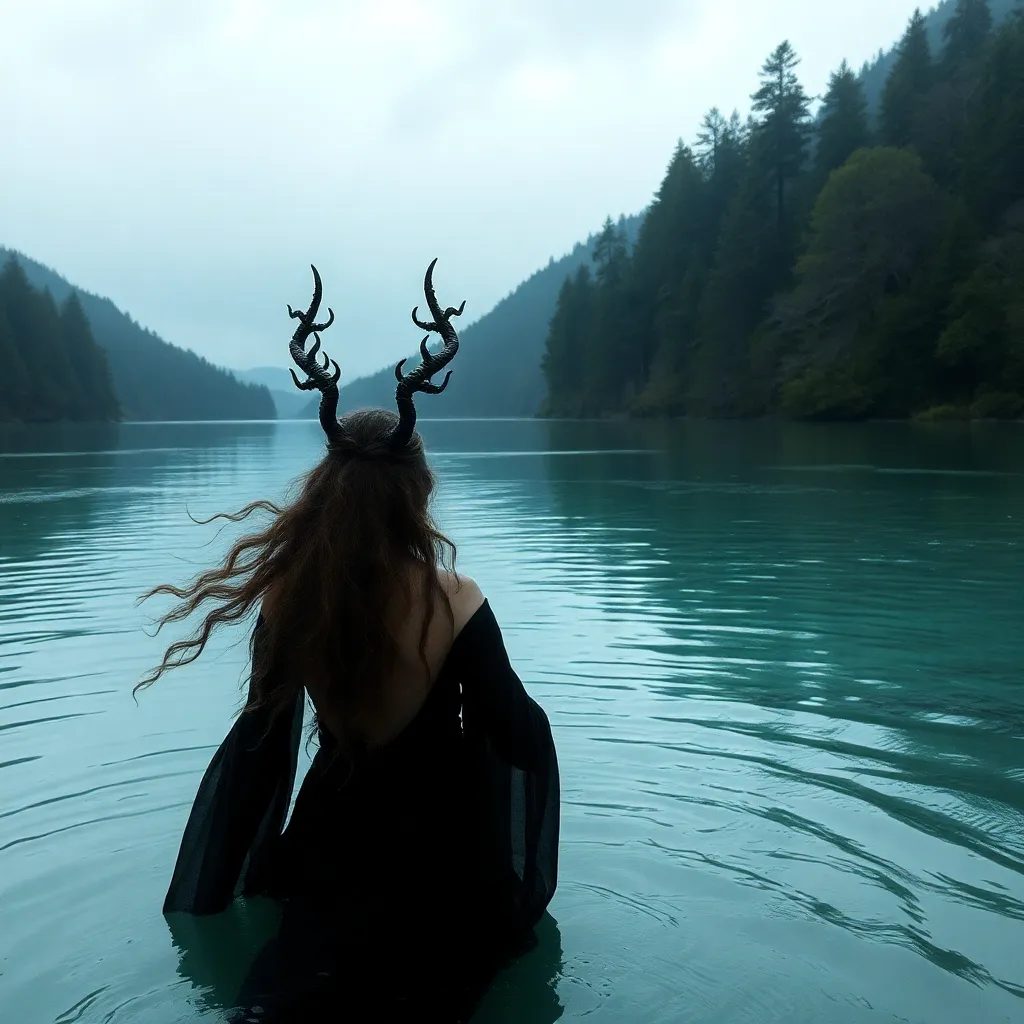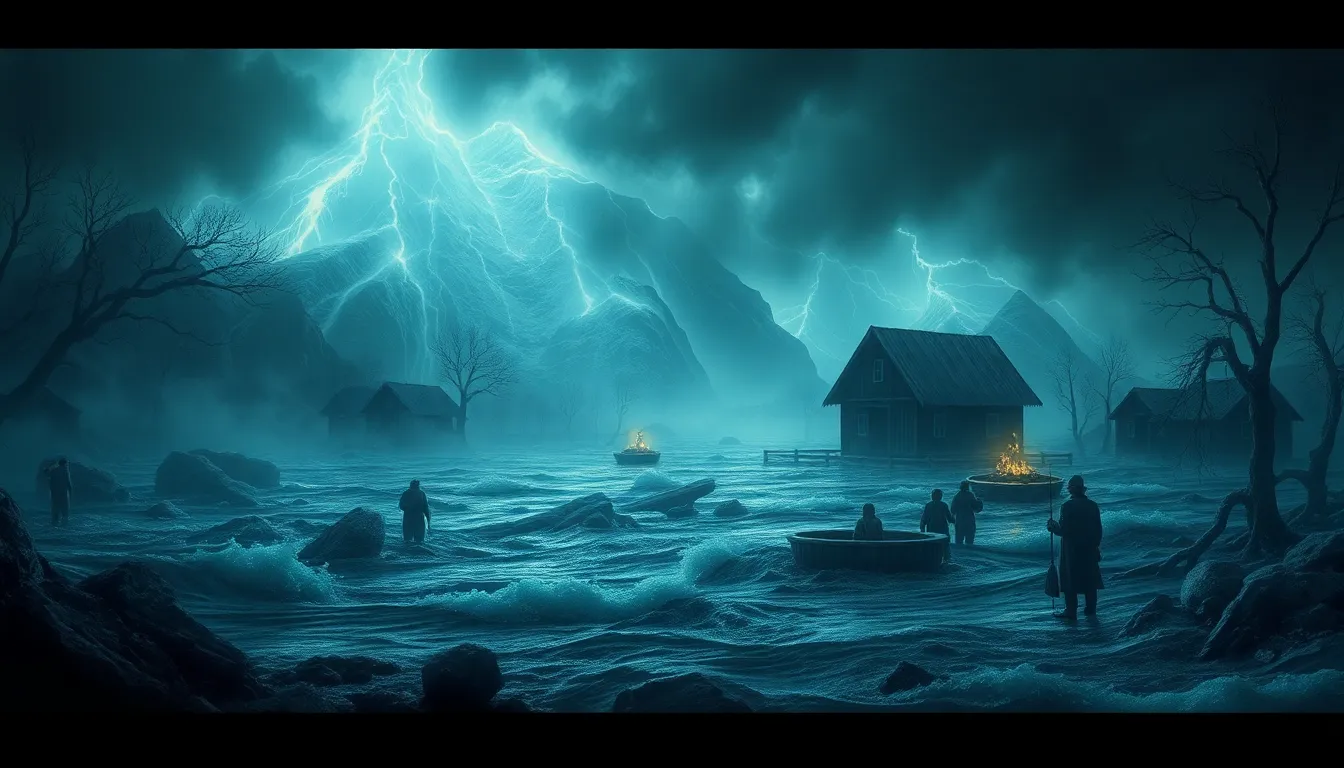Rusalka in the 21st Century: Examining the Relevance and Enduring Appeal of Water Spirit Legends Today
I. Introduction
The Rusalka is a captivating figure rooted in Slavic mythology, often depicted as a water spirit or mermaid-like creature. Historically, Rusalki were believed to be the souls of young women who had drowned, often associated with the beauty and peril of water. As we delve into the 21st century, we find that the tales of Rusalki are not only surviving but also thriving, reflecting contemporary concerns and resonating with modern audiences.
This article aims to explore the contemporary relevance and enduring appeal of Rusalka legends, examining their historical context, representation in modern media, and psychological significance in today’s world.
II. Historical Context of Rusalka Legends
A. Origins and evolution of Rusalka myths in Slavic folklore
The origins of Rusalka myths trace back to ancient Slavic beliefs, where they were often seen as nature spirits associated with water bodies like rivers and lakes. Over time, these myths evolved, reflecting societal changes and evolving attitudes towards women and nature.
B. The symbolism of water spirits in various cultures
Water spirits, including Rusalki, have been a common motif across many cultures, symbolizing:
- The duality of beauty and danger
- Fertility and the life-giving properties of water
- Transformation and transition
These symbols often serve as metaphors for the complexities of human emotions and relationships.
III. The Rusalka in Modern Media
A. Representation in literature, film, and visual arts
In contemporary literature and film, the Rusalka has been reinterpreted in various ways. Works such as The Rusalka by Alexander Pushkin and the opera by Antonín Dvořák have revived interest in this mythos. Modern films and visual art also draw upon Rusalka imagery, showcasing her as both a tragic figure and an emblem of nature’s power.
B. Analysis of contemporary adaptations and reinterpretations
Recent adaptations often focus on:
- Empowerment of female characters
- The intersection of love and tragedy
- Environmental themes and ecological consciousness
These reinterpretations allow the Rusalka to resonate with modern audiences, emphasizing themes that are relevant to contemporary society.
IV. Rusalka and Feminine Identity
A. The Rusalka as a symbol of female agency and empowerment
Traditionally, Rusalki were seen as victims of circumstance, yet modern narratives often portray them as symbols of female agency. They embody the struggle against societal constraints and the quest for autonomy, making them powerful figures in feminist discourse.
B. Examination of themes of love, loss, and transformation
The tales of Rusalki frequently explore profound themes such as:
- Unrequited love and heartbreak
- Loss of innocence and identity
- Transformation through suffering
These themes resonate deeply with audiences, reflecting universal human experiences and emotions.
V. Environmental Significance of Water Spirit Legends
A. Rusalka as a reflection of ecological concerns and water conservation
As guardians of water, Rusalki symbolize the delicate balance of ecosystems. In an age where environmental issues are at the forefront of global discussions, the Rusalka myth serves as a poignant reminder of humanity’s connection to nature and the importance of preserving our water sources.
B. The role of folklore in raising awareness of environmental issues
Folklore, including Rusalka legends, plays a crucial role in:
- Educating communities about ecological responsibility
- Highlighting the consequences of pollution and climate change
- Encouraging a deeper appreciation for nature
These narratives can inspire action and foster a sense of stewardship for the environment.
VI. Cultural Revivals and Festivals
A. Modern interpretations and celebrations of Rusalka in Slavic communities
In recent years, many Slavic communities have embraced Rusalka legends through cultural revivals. Festivals celebrating the Rusalka often feature:
- Traditional music and dance
- Art exhibitions
- Storytelling sessions
These events serve to promote cultural heritage and foster community bonds.
B. The impact of folklore festivals on cultural identity and preservation
Folklore festivals centered around the Rusalka not only preserve traditional stories but also strengthen cultural identity among younger generations. They offer a space for reflection on the past while encouraging a collective future rooted in shared values and beliefs.
VII. Psychological and Emotional Resonance
A. The Rusalka archetype in addressing human emotions and existential themes
The Rusalka archetype resonates on a psychological level, embodying themes of:
- Longing and desire
- Isolation and alienation
- Transformation and rebirth
These themes are relevant to the human condition, allowing audiences to explore their own feelings and experiences through the lens of this mythical figure.
B. How contemporary audiences connect with the myth on a personal level
Contemporary interpretations of the Rusalka often invite audiences to reflect on their personal journeys, making the myth a powerful tool for introspection and emotional exploration. The complexity of the Rusalka as both a tragic and empowered figure continues to resonate deeply with individuals navigating their own stories of love, loss, and transformation.
VIII. Conclusion
In summary, the Rusalka legends remain a vibrant part of cultural discourse in the 21st century, reflecting contemporary societal values, environmental concerns, and the complexities of feminine identity. Through their evolution in modern media and cultural celebrations, these water spirit tales continue to captivate and inspire.
The enduring appeal of Rusalka legends lies in their ability to adapt while maintaining their core themes, allowing them to connect with audiences across generations. As we move forward, it is essential to recognize and celebrate the rich tapestry of folklore that shapes our understanding of the world and ourselves.


